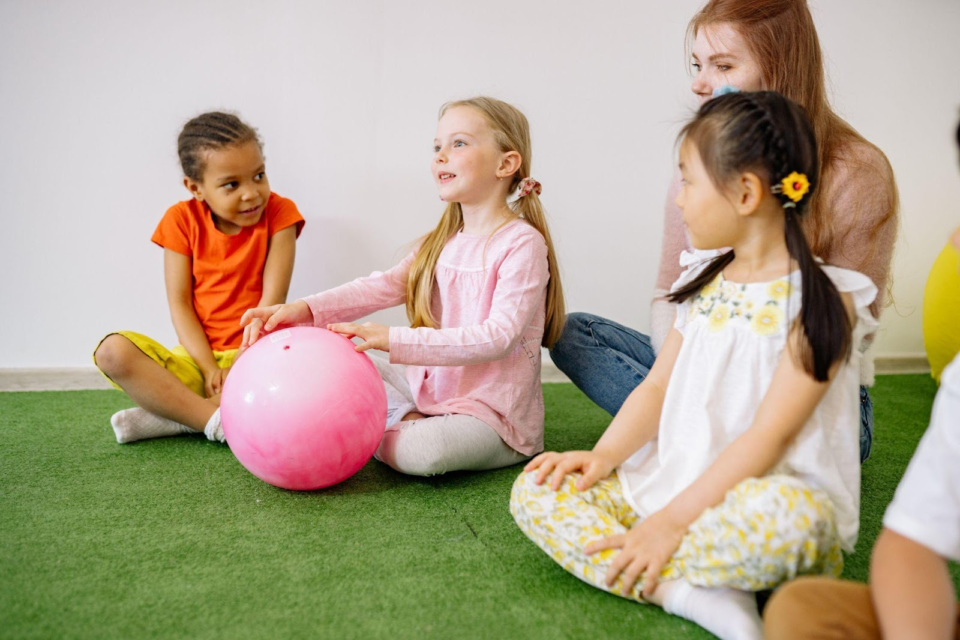
Why Daycare Makes a Difference: 8 Compelling Reasons to Enroll Your Child Today

*Collaborative Post
Introduction
As parents, we all want the best for our children, especially when it comes to their growth and development. It’s natural to have concerns and questions about childcare options, including the prospect of enrolling your child in a daycare center. However, it’s essential to recognize the positive impact of daycare on your child’s development.
Daycare can make a significant difference in shaping your child’s early years, providing them with valuable experiences and opportunities for growth. With the help of informative websites such as Toddle, you can be more assured in selecting a suitable daycare for your child.
Socialization and Emotional Development
Children can interact with their peers and caring adults in a structured and supportive environment in a daycare setting. This early exposure to social interactions plays a vital role in shaping their social skills and emotional well-being.
At daycare settings like Cadence Academy Preschool, children engage in various activities that encourage teamwork, cooperation, and communication. They learn how to navigate conflicts, negotiate, and compromise—essential skills that will benefit them throughout their lives. Through play and shared experiences, children develop empathy and understanding, gaining a sense of belonging and acceptance within their peer group.
Furthermore, daycare helps alleviate separation anxiety in children. While it’s natural for young ones to experience initial discomfort when separated from their parents, daycare provides a safe and nurturing space where they can gradually adapt to being away from home.
Cognitive Stimulation and Learning
Daycare centers offer an enriching environment that stimulates a child’s cognitive development. Children are encouraged to explore, experiment, and learn through carefully designed activities and age-appropriate materials. Each activity is thoughtfully crafted to enhance their cognitive abilities.
Playing and interactive learning experiences at daycare foster curiosity and critical thinking skills. Children are encouraged to ask questions, solve problems, and make discoveries. These experiences expand their knowledge and understanding of the world and promote the development of essential cognitive skills such as memory, attention span, and logical reasoning.
Daycare also often incorporates educational programs that align with early childhood curriculum frameworks. These programs offer a structured approach to learning, introducing children to foundational concepts in areas such as language, math, science, and social studies.
Language and Communication Skills
Daycare environments provide a rich linguistic atmosphere where children are exposed to conversations, vocabulary, and language-rich activities. This exposure plays a crucial role in their language development during their early years.
At daycare, children converse with their caregivers and peers, fostering their ability to express themselves verbally. They learn to listen attentively, follow instructions, and engage in meaningful exchanges. Through group activities, storytime, and interactive play, children expand their vocabulary, enhance sentence structure, and develop effective communication skills.
Daycare centers often incorporate language-focused activities that promote reading readiness. Caregivers introduce age-appropriate books, engaging children in storytelling sessions and encouraging them to participate in discussions.
Physical Health and Well-being
Daycare programs emphasize the importance of nutritious meals and snacks. Caregivers carefully plan menus that include a variety of fruits, vegetables, whole grains, and protein sources. Daycare centers help establish lifelong healthy eating practices by introducing children to balanced meals and encouraging healthy eating habits.
Physical activity is also a crucial component of daycare programs. Children can engage in age-appropriate exercises, play games, and participate in outdoor activities that promote gross motor skills and physical development.
Furthermore, daycare centers prioritize the safety and cleanliness of their facilities. They implement strict hygiene practices, including regular handwashing routines and sanitization protocols. By creating a clean and hygienic environment, daycare centers minimize the spread of illnesses and help children develop good hygiene habits that contribute to their overall well-being.

School Readiness
Enrolling your child in a daycare center can significantly contribute to their school readiness. Daycare programs often incorporate activities and experiences that prepare children for the transition to formal education.
Daycare centers introduce structured routines and schedules, mirroring the school structure. Children become familiar with daily routines, such as arrival and departure times, meal times, and designated learning activities. This exposure helps children understand the expectations and structure of a school day, making the transition to kindergarten smoother.
Independence and Self-confidence
Daycare centers play a vital role in fostering independence and self-confidence in children. From an early age, children are encouraged to engage in age-appropriate tasks and activities independently, promoting a sense of autonomy and self-reliance.
In a daycare setting, children learn to dress themselves, put on their shoes, and take care of their personal belongings. They develop self-help skills such as feeding themselves, using the restroom independently, and cleaning up after playtime. These activities instill a sense of accomplishment and independence in children, boosting their self-confidence.
Daycare centers also provide a supportive environment for children to explore and take risks. Children learn to problem-solve, make decisions, and take initiative through age-appropriate challenges and activities.
Exposure to Diversity
Daycare centers provide a rich and multicultural environment where children can interact with peers from various backgrounds, cultures, and experiences. This exposure to diversity has profound advantages for their social and cognitive development.
In a daycare setting, children learn to appreciate and respect differences in others. They develop an understanding of various cultures, traditions, languages, and perspectives. Interacting with peers from different backgrounds promotes empathy, tolerance, and a sense of inclusivity from a young age.
Furthermore, exposure to diversity fosters open-mindedness and broadens children’s horizons. They gain exposure to different ideas, customs, and ways of thinking, helping them develop a global perspective.
Parental Convenience and Support
Balancing work and childcare responsibilities can be challenging for many families, and daycare centers provide a reliable solution. By enrolling your child in daycare, you can have peace of mind knowing they are in a safe and nurturing environment while attending to your professional commitments.
Daycare centers typically operate during regular working hours and provide flexible scheduling options for different family needs. Whether you require full-time, part-time, or occasional care, daycare centers offer options that suit your schedule and provide the necessary flexibility.
Moreover, daycare centers employ qualified and trained caregivers with expertise in early childhood development. These professionals create a supportive and stimulating environment for children. The presence of experienced caregivers allows parents to entrust their child’s care to capable hands, knowing that their child is receiving quality care and attention.

Conclusion
Enrolling your child in a daycare center offers many benefits that contribute to their holistic development and future success. From socialization and emotional growth to cognitive stimulation and school readiness, daycare provides a nurturing environment for children to thrive. Embrace the difference that daycare can make in your child’s life and set them up for a bright and promising future.
*This is a collaborative post. For further information please refer to my disclosure page.




